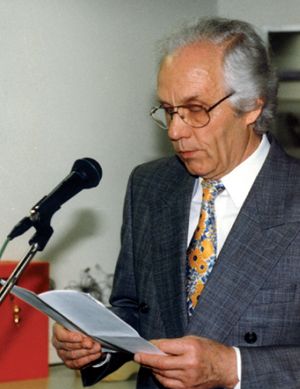Eberhard Gerstel Prize for Outstanding Work in Separation Sciences
The Working Group Separation Sciences of the Analytical Division of the German Chemical Society are now inviting applications for the Eberhard Gerstel Prize. The prize will be awarded to a scientist for an outstanding publication in the field of separation sciences. Gerstel sponsors the prize in honour of Eberhard Gerstel Sr., founder of the company.

The Working Group Separation Sciences of the Analytical Division of the German Chemical Society are now inviting applications for the Eberhard Gerstel Prize. The prize will be awarded to a scientist for an outstanding publication in the field of separation sciences. Gerstel sponsors the prize in honour of Eberhard Gerstel Sr., founder of the company.
The Eberhard Gerstel Prize will be awarded for the third time during the Analytica 2014 Conference in Munich, Germany in April 2014.
Applicants should be first author or corresponding author of a paper printed or accepted for publication in an international peer-reviewed journal in 2012 or 2013. Applicants may apply themselves or can be nominated by another scientist. The prize is endowed with €2500. An international committee will review the applications and choose the recipient.
Applications or nominations must be submitted in electronic form as one single PDF file by January 10, 2014. Each application or nomination must include a copy of the published paper, CV, and letter of application stating why the candidate merits the award or a letter of recommendation, respectively. All applications must be sent to the address listed below.
For more information and to apply contact:
Prof. Dr. Werner Engewald
University of Leipzig, Institute of Analytical Chemistry
Linnestr.3, D-04103 Leipzig, Germany
engewald@uni-leipzig.de
Regulatory Deadlines and Supply Chain Challenges Take Center Stage in Nitrosamine Discussion
April 10th 2025During an LCGC International peer exchange, Aloka Srinivasan, Mayank Bhanti, and Amber Burch discussed the regulatory deadlines and supply chain challenges that come with nitrosamine analysis.






